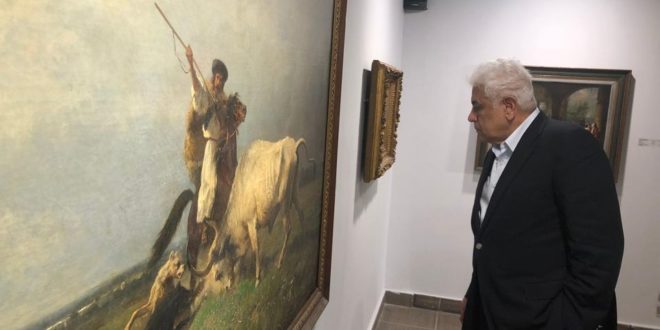Today, Prof. Dr. Hossam Badrawi visited the Arts Complex at Aisha Fahmy Palace, which includes a rare collection of international paintings and original statues by European artists between the seventeenth and nineteenth centuries, which are displayed in the current period.
Dr. Badrawi accompanied during his tour the artist Osama al-Labban, director of the Arts Complex, who explained to Dr. Badrawi the importance of the museum and a number of rare pieces, some of which amount to two hundred million dollars.
Dr. Badrawi was keen to visit all aspects of the museum, and expressed his great admiration for Egypt’s possession of real priceless treasures and praised the organizers of the exhibition, as he said that the display is comparable to the largest museums he visited in the world.
It is worth noting that Aisha Fahmy is the daughter of Ali Pasha Fahmy, the great master of King Fouad I. Aisha Fahmy was married for a while to the late artist Youssef Wehbe, and he lived with her in the palace for many years, and she died in 1962.
The palace was built in the classical style in 1907 by the Italian architect Antonio Lachac.
The palace rooms are distinguished by the presence of silk and linen panels, in addition to the presence of European decorations on the sides of the walls.
In 1975, Youssef El Sebaei, the former Minister of Culture, annexed the palace to the Arts and Letters Authority and the plastic arts sector. In 1978, a republican decision was issued to allocate it as a museum for the jewels of the Muhammad Ali family, and it was canceled by another republican decision in 1986, after allocating the Fatima Haidar Palace in Alexandria as a museum of jewels. To return once again to the disposal of the Ministry of Culture to become a complex of arts.

 Dr. Hossam Badrawi Official Website
Dr. Hossam Badrawi Official Website

